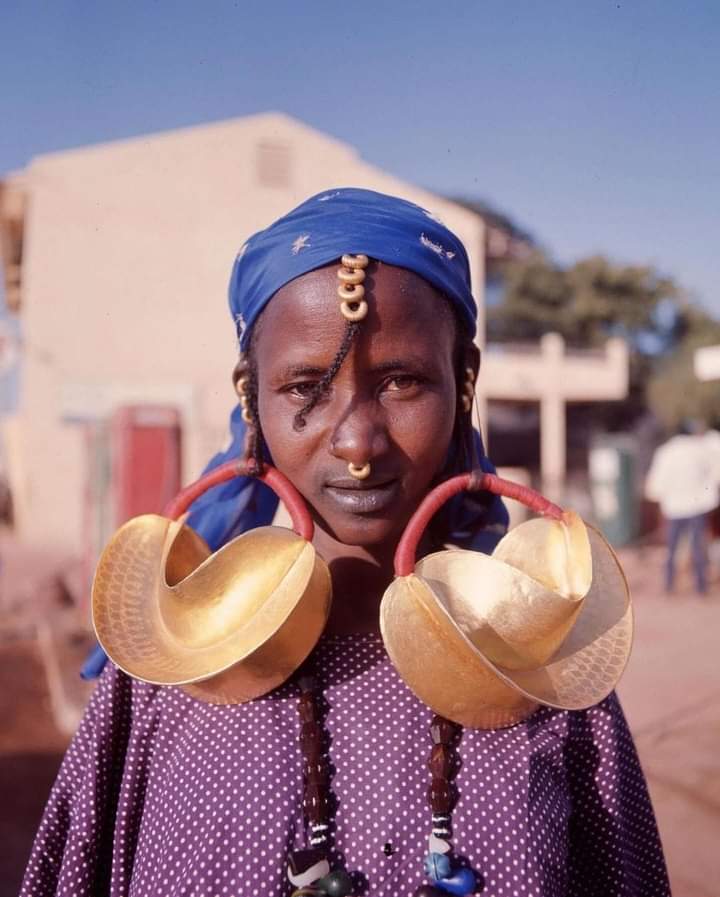Apostle Johnson Suleman’s Powerful Response to Halima Abubakar’s Apology: Forgiveness Isn’t Forgetting

Apostle Johnson Suleman, the renowned Nigerian cleric, has addressed the recent apology from actress Halima Abubakar, emphasizing that forgiveness does not equate to memory loss. This statement appears to be Suleman’s response to Abubakar’s public apology, which has generated significant attention within Nigeria’s entertainment and religious circles. Apostle Johnson Suleman’s words underscore the complexity of forgiveness, highlighting that it does not necessitate forgetting past hurts or transgressions.
By distinguishing between forgiveness and forgetting, Apostle Suleman stresses the importance of acknowledging past wrongs while choosing to move forward. This nuanced perspective on forgiveness resonates with many, particularly in situations where reconciliation and healing are sought.
Halima Abubakar’s Apology: A Step Towards Healing
Halima Abubakar’s apology has been met with mixed reactions, with some hailing it as a courageous step towards healing and others questioning its sincerity. Abubakar’s decision to apologize publicly reflects a desire to address past conflicts and potentially pave the way for reconciliation.
Apostle Johnson Suleman’s response, while not directly accepting or rejecting the apology, emphasizes the need for genuine change and accountability.
The Content: Abubakar and Apostle Johnson Suleman’s Tribulent Past
The controversy surrounding Halima Abubakar and Apostle Johnson Suleman’s relationship has been a long-standing one, marked by intense media scrutiny. At the center of this tumultuous history are the allegations made by Abubakar against Suleman, which have sparked heated debates and drawn attention from the public and media alike ¹. The nature of these allegations has been shrouded in controversy, with many questioning their validity and others supporting Abubakar’s claims.
The significance of Abubakar’s recent apology and Apostle Johnson Suleman’s measured response cannot be overstated, given their complicated past. This development has raised questions about the possibility of reconciliation and healing between the two. However, Suleman’s emphasis on remembering past wrongs while forgiving suggests that the path to reconciliation will require more than just apologies – it will demand accountability and meaningful change. As the situation unfolds, the public will be watching closely to see if Abubakar’s apology and Suleman’s response will lead to genuine growth and healing, not just for the individuals involved but also for the broader Nigerian entertainment and religious communities.
Forgiveness in the Face of Controversy
Apostle Johnson Suleman’s nuanced stance on forgiveness has ignited a crucial conversation about its role in conflict resolution, particularly in contentious situations like the one involving Halima Abubakar. Proponents of forgiveness argue that it is a vital step towards healing and moving forward, allowing individuals to release emotional burdens and find peace. However, others insist that forgiveness must be paired with accountability and tangible change, ensuring that past wrongs are acknowledged and measures are taken to prevent future occurrences. This debate underscores the multifaceted nature of forgiveness.
Suleman’s emphasis on remembering past wrongs while forgiving has added depth to this discussion, highlighting the importance of balance between forgiveness and accountability. This approach acknowledges the hurt caused by past actions while still allowing for the possibility of reconciliation and growth. Critics argue that unconditional forgiveness can enable harmful behavior, while supporters contend that it demonstrates compassion and faith in the possibility of redemption. As this conversation unfolds, it is clear that Apostle Suleman’s words have struck a chord, encouraging individuals to grapple with the complexities of forgiveness in the face of controversy. The outcome will undoubtedly influence how similar conflicts are navigated within Nigeria’s religious and entertainment communities.
Reactions from the Public and Nollywood
The apology from Halima Abubakar and Apostle Johnson Suleman’s subsequent response have sparked a heated debate among the Nigerian public. Social media platforms are abuzz with diverse opinions, ranging from applause for Abubakar’s courage to skepticism about her true intentions. Some have commended Abubakar for taking the first step towards reconciliation, acknowledging the difficulty of publicly admitting fault. Others, however, question the sincerity of her apology, citing past actions and unresolved issues.
Nollywood stakeholders have also joined the conversation, stressing the importance of genuine reconciliation and growth within the industry. Prominent figures like [Name], [Name], and [Name] have shared their thoughts, emphasizing that this situation presents an opportunity for the industry to confront its demons and work towards healing. They advocate for a culture of accountability, transparency, and open communication to prevent similar conflicts in the future. As the debate rages on, one thing is clear: the outcome of this high-profile drama will have far-reaching implications for Nollywood’s reputation and its ability to foster a positive, supportive environment for its members.
Implications for Reconciliation and Healing
The public exchange between Halima Abubakar and Apostle Johnson Suleman has cast a spotlight on the complexities of forgiveness and reconciliation. As the situation continues to unfold, all eyes are on whether Abubakar’s apology and Suleman’s measured response will pave the way for genuine healing and reconciliation. The stakes extend far beyond the individuals involved, with the outcome likely to resonate throughout Nigeria’s entertainment and religious circles. The nation watches with bated breath as this high-profile drama navigates the delicate balance between forgiveness, accountability, and redemption.
The ripple effects of this situation could be profound, influencing how similar conflicts are addressed within Nigeria’s entertainment and religious communities. If successful, this reconciliation process might serve as a model for resolving disputes and promoting healing. Conversely, a misstep could reinforce existing divisions and skepticism. Apostle Suleman’s emphasis on remembering past wrongs while forgiving underscores the need for a nuanced approach. As the dust settles, one thing is clear: the path to reconciliation will require sustained effort, transparency, and a commitment to growth from all parties involved. The nation awaits with anticipation, hoping for a resolution that brings closure and healing to those affected.
Discover more from OGM News NG
Subscribe to get the latest posts sent to your email.





